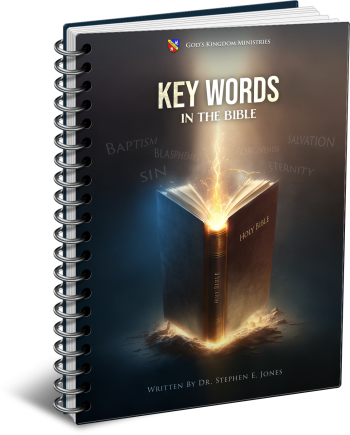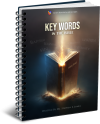Latest Posts
View the latest posts in an easy-to-read list format, with filtering options.

To understand what Scripture says, one must know the meaning of words and key concepts. This book is designed to prevent misunderstanding.
Category - General

God’s law calls for the death penalty in cases where the earthly courts are incapable of giving justice to the victims. Most Christians today are accustomed to think that the death penalty restores justice, but this is not so, because it does not bring back the murdered victim. How could a kidnapper restore two of his victims as double restitution? How does one undo a rape?
Earthly courts are restricted by their very nature from administering biblical justice. The spirit of the law seeks to restore that which was lost or stolen, just as, in the big picture, it seeks to restore what was lost in Eden. Adam lost the garments of Yeshua (“Salvation”) when he sinned, and we have all felt the consequences. Yet by understanding the corrective nature of the law of God, we see how the divine plan seeks relentlessly to restore justice to all, correct the sinner, and teach him the ways of righteousness.
This grand purpose of the law, can be only partially successful, due to the fleshly limitations of earthly courts. For this reason, there is a higher court which has no such limitations. At the great White Throne judgment in Rev. 20:11, 12, all judgment has been committed to the Son (John 5:22). His judgment at that time will have no fleshly restrictions. Not even death itself can withstand the decree that summons them from the dead.
I do not know how Christ will administer justice in that day. I do know that the overcomers, who were raised a thousand years earlier in the first resurrection (Rev. 20:6), will not be among those who are judged. They may indeed be among the judges, as they too are given thrones (Daniel 7:9; Rev. 20:4). Even at the present time, they are seated with Christ in His throne (Eph. 2:6, 7) and are in a position to “judge the world” (1 Cor. 6:2).
Unfortunately, most believers in the church are yet incapable of judging by the mind of Christ. They lack discernment, and, in fact, they do not know the law by which they are supposed to judge. Those who study the law usually study it with an Old Covenant mindset. Without the mind of Christ, they do not understand the spirit of the law, and so they fail to see the grace and mercy that is built into the law. So they tend to view justice as mere punishment that is to be feared.
When the saints judge the world, they will not sentence sinners to a burning hell, for this would be an unlawful sentence that fails to correct and restore sinners back to God.
Most believers, in fact, are not overcomers, nor will they be raised in the first resurrection. Their resurrection will be at the general resurrection. They will be raised along with the sinners (John 5:28, 29). They will receive life (immortality) at the general resurrection, but not before they too have been judged in some manner—some with many lashes, some with few (Luke 12:47, 48).
These “lashes” are part of the “fire” (Luke 12:49) of God’s law. Paul alludes to this further in 1 Cor. 3:11-15 saying,
11 For no man can lay a foundation stone other than the one which is laid, which is Jesus Christ. 12 Now if any man builds on the foundation with gold, silver, precious stones, wood, hay, straw, 13 each man’s work will become evident; for the day will show it because it is to be revealed with fire, and the fire itself will test the quality of each man’s work. 14 If any man’s work which he has built on it [i.e., on the foundation stone of Christ] remains, he will receive a reward. 15 If any man’s work is burned up, he will suffer loss; but he himself will be saved, yet so as through fire.
Paul was speaking to believers, not unbelievers. He was speaking to those who were building upon the “foundation stone” of Jesus Christ. Some build with metaphorical gold, silver, and precious stones. Others build with wood, hay, and straw. The point is that some things are fuel to the fire; other things withstand the test of fire.
This judgment is rendered at the general resurrection of the dead, which includes most believers, as Jesus clearly said. In that day, many Christians will be glad that the fire is not literal. It is designed to consume one’s excess baggage (carnal nature, opinions, traditions of men). Perhaps the fire will also clear up the injustices caused by their lawlessness (anomia), injustices from their life on earth which remain unresolved and unforgiven. In that day, will we see all of these repentant believers finally apologizing to their neighbors, friends, and family?
It appears that this “fire” must consume the wood, hay, and straw before Christ grants them the reward of immortality. Better to make things right in this lifetime than wait for the great White Throne to enforce it.
Having said that, there are many cases that are now impossible to rectify directly with the victim of injustice. Many have already died. But God is not the God of the dead, but of the living (Matt. 22:32). Death is not a hindrance. One can still appeal to God, who is able to summon anyone to the divine court, where those on earth can apologize to those they have wronged. As long as this is done in God’s presence, it is not like having a séance, which is forbidden.
What about the things we have done to others that are now long forgotten? We can only deal with those things that God brings to mind and then trust that He will take care of the rest. God knows our hearts, and we know His heart of love. He is not standing there ready to beat us down for every sin. He is on our side. Focus on that relationship and know that God is good.
When Paul writes that “the saints will judge the world” (1 Cor. 6:2), it is clear that the Corinthian believers were not yet “competent to constitute the smallest law courts.” It is not likely that God would give such people a throne from which to judge the world. Hence, not all believers will judge the world, but, as I have said, they themselves will be in need of the “fire” of God to burn up the wood, hay, and straw.
For this reason, we must distinguish between the believers and the overcomers. The overcomers are those who are raised in the first resurrection, which is limited to the few. Rev. 20:5 says,
5 The rest of the dead did not come to life until the thousand years were completed. This is the first resurrection.
Verse 6 then identifies them as “priests of God and of Christ.” In other words, the first resurrection is reserved for believers ONLY. When I was a child, I asked my teacher about this, and she told me that ALL believers will be raised in the first resurrection, while ONLY unbelievers will be raised in the general resurrection. That was wrong.
Rev. 20:12 says that at the great White Throne judgment, “another book was opened, which is the book of life.” Rev. 20:15 says further,
15 And if anyone’s name was not found written in the book of life, he was thrown into the lake of fire.
This implies that there will be some whose names are found in the book of life—otherwise, there will be no point in bringing that book to the court. Indeed, the rest of the believers are those whose names are written in the book of life. These are the ones who are summoned to the court along with the unbelievers (John 5:28, 29). This is the occasion that Paul wrote about in his testimony before Felix in Acts 24:14, 15, saying, “there shall certainly be a resurrection of both the righteous and the wicked.”
Obviously, the wicked are cast into the “lake of fire,” while the righteous are given life (after the “fire” has burned up their wood, hay, and straw).
The same fire that burns up wood, hay, and straw in believers is applied also to the unbelievers. The difference is that the believers have laid Jesus Christ as the foundation of their temple, whereas the unbelievers failed to do so until the day arrives when every knee bows and every tongue professes Christ. So the believers will obtain immortal life at the judgment, but the (former) unbelievers will not.
Here, then, is a peculiar situation. The unbelievers will remain mortal, and yet Rev. 20:14 says,
14 Then death and Hades were thrown into the lake of fire. This is the second death, the lake of fire.
It is clear that “death” in this case is the first death—mortality. Hence, the first death is cast into the second death. The first death is what we inherited from Adam on account of his sin, and for this reason we were all born mortal. The second death, however, is a second form of death by which we “die daily” (1 Cor. 15:31). It is not mortality but is rather putting to death the “old man” and being raised to newness of life (Rom. 6:4). It is symbolized by baptism.
The unbelievers, then, will no longer be mortal, but neither will they receive immortal “life.” It seems that they will be similar to Adam’s condition prior to sin. He was not exactly immortal—otherwise, he could not have become mortal—but his body was in a state of complete health, so that he would not have died unless, perhaps, he fell off a cliff.
It seems that these ex-unbelievers will be restored to full health, so that they will not age. The aging process is when our cells wear out and die faster than they can be replaced. I believe that this will no longer be the case for them, and that if they should die in some sort of accident, God will raise them up immediately. Perhaps God will simply prevent accidents from happening. Or perhaps He will assign everyone an angel to prevent accidents from happening, as we read in Psalm 91:11, 12,
11 For He will give His angels charge concerning you, to guard you in all your ways. 12 They will bear you up in their hands, that you do not strike your foot against a stone.
The point is that these new believers will have to begin learning the ways of righteousness that they failed to learn during their previous lifetime. Like us today, righteousness will be imputed to them by faith when they bow the knee and profess Christ at the White Throne. Then they will be baptized “with the Holy Spirit and fire,” so that their fleshly nature and its “chaff” can begin to be burned out of them.
In this way, death is cast into the lake of fire. They will be “sold” to the overcomers, according to the law in Exodus 22:3, because they will not have the resources to pay for their own sins—and because they had failed in their earlier life to claim Christ’s death as payment for their sins. Being converted late, as it were, they will have to grow spiritually through the work of the Holy Spirit and the feast of Pentecost until the Creation Jubilee.
In my understanding, their time of judgment will span six great “weeks,” or 42,000 years, bringing us to the year 49,000.